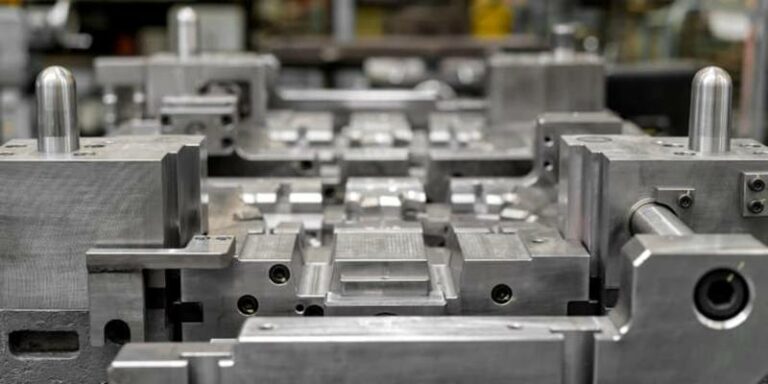6 Simple Techniques For Stahl Specialty Company
6 Simple Techniques For Stahl Specialty Company
Blog Article
Little Known Facts About Stahl Specialty Company.
Table of ContentsThe 5-Second Trick For Stahl Specialty CompanyAll About Stahl Specialty CompanyThe Ultimate Guide To Stahl Specialty CompanyStahl Specialty Company Fundamentals ExplainedWhat Does Stahl Specialty Company Mean?
The subtle distinction exists in the chemical material. Chemical Contrast of Cast Aluminum Alloys Silicon promotes castability by lowering the alloy's melting temperature level and enhancing fluidity during spreading. It plays an essential duty in enabling intricate mold and mildews to be filled accurately. Furthermore, silicon contributes to the alloy's toughness and put on resistance, making it useful in applications where toughness is vital, such as auto parts and engine elements.It additionally enhances the machinability of the alloy, making it simpler to refine into finished products. By doing this, iron adds to the general workability of aluminum alloys. Copper increases electrical conductivity, making it advantageous in electrical applications. It likewise improves corrosion resistance and adds to the alloy's overall strength.
Manganese adds to the toughness of light weight aluminum alloys and improves workability. It is typically used in wrought light weight aluminum products like sheets, extrusions, and profiles. The presence of manganese aids in the alloy's formability and resistance to breaking throughout construction procedures. Magnesium is a lightweight component that supplies toughness and influence resistance to light weight aluminum alloys.
It allows the manufacturing of lightweight elements with superb mechanical homes. Zinc enhances the castability of light weight aluminum alloys and aids manage the solidification process during casting. It enhances the alloy's strength and hardness. It is frequently located in applications where detailed shapes and fine details are necessary, such as decorative spreadings and certain auto parts.
All About Stahl Specialty Company
Due to the fact that aluminum-silicon alloys have great spreading properties, high gas properties, easy procedures, and excellent rust resistance, aluminum-silicon alloys are most commonly made use of in the die-casting sector in the house and abroad. At the very same time, aluminum-silicon alloys are likewise relatively very early and widely recognized alloys developed and utilized in die-casting. After constant research study and renovation, the majority of the existing worldwide mainstream aluminum-silicon alloys have been finalized and are absolutely nothing greater than A356, A360, A380, ADC12, B390, and A413.
The key thermal conductivity, tensile strength, return strength, and prolongation differ. Amongst the above alloys, A356 has the highest thermal conductivity, and A380 and ADC12 have the lowest.

Stahl Specialty Company Fundamentals Explained
In precision spreading, 6063 is appropriate for applications where elaborate geometries and high-quality surface area coatings are critical. Examples consist of telecommunication units, where the alloy's superior formability enables streamlined and visually pleasing designs while preserving structural integrity. Similarly, in the Lights Solutions market, precision-cast 6063 components produce elegant and effective lighting components that require intricate shapes and good thermal performance.
(https://www.pubpub.org/user/frances-howard)
The A360 displays superior prolongation, making it excellent for complicated and thin-walled elements. In precision casting applications, A360 is appropriate for industries such as Consumer Electronic Devices, Telecommunication, and Power Tools.

In accuracy spreading, aluminum 413 shines in the Consumer Electronic Devices and Power Tools industries. It's typically utilized to craft elaborate elements like smart device housings, cam bodies, and power tool cases. Its precision is impressive, with limited resistances as much as 0.01 mm, making sure remarkable product assembly. This alloy's exceptional deterioration resistance makes it an outstanding choice for exterior applications, ensuring lasting, resilient items in the discussed sectors.
The Ultimate Guide To Stahl Specialty Company
The aluminum you could try this out alloy you choose will considerably impact both the spreading procedure and the homes of the last item. Because of this, you have to make your decision meticulously and take an enlightened technique.
Establishing the most ideal light weight aluminum alloy for your application will mean considering a wide variety of qualities. These comparative alloy features follow the North American Die Spreading Association's standards, and we've divided them into two categories. Foundries in Missouri. The very first category addresses alloy features that affect the production procedure. The 2nd covers attributes influencing the properties of the end product.
The alloy you choose for die spreading straight influences several aspects of the casting process, like how very easy the alloy is to deal with and if it is vulnerable to casting defects. Hot cracking, also recognized as solidification breaking, is a typical die spreading issue for light weight aluminum alloys that can result in inner or surface-level rips or splits.
The Of Stahl Specialty Company
Specific aluminum alloys are a lot more vulnerable to hot breaking than others, and your option needs to consider this. One more common flaw found in the die spreading of aluminum is die soldering, which is when the actors sticks to the die wall surfaces and makes ejection tough. It can harm both the cast and the die, so you must seek alloys with high anti-soldering residential or commercial properties.
Rust resistance, which is already a noteworthy attribute of aluminum, can vary significantly from alloy to alloy and is a crucial characteristic to think about relying on the environmental conditions your item will be subjected to. Use resistance is one more residential property generally looked for in aluminum items and can differentiate some alloys.
Report this page